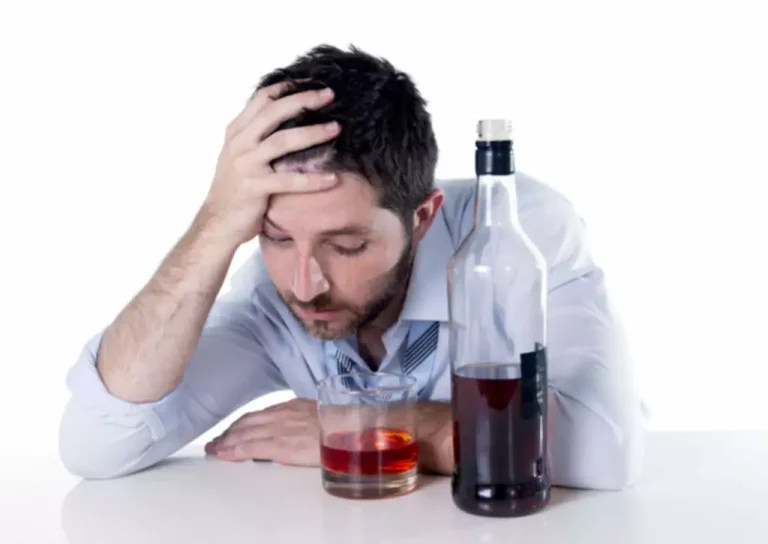
Alcohol addiction is the compulsive need to drink, regardless of the consequences. It is when someone regularly drinks to excess and has developed alcohol dependence. If you are struggling with an alcohol use disorder, ask your doctor about treatment options such as counseling or medication-assisted treatment. People with alcohol intolerance may experience discomfort even with small amounts of alcohol, prompting them to avoid it altogether. If this is the case, alcohol detox and addiction treatment will be very helpful.
Common symptoms
- „By flushing and sweating you are delivering more heat to the skin and thereby increasing heat loss from the 'core’ of the body to the environment.”
- You can meet with a specialized physician, such as myself, to learn more about treatment options, including medication to stop drinking and specialized alcohol therapy.
- The alcohol that isn’t metabolized is excreted through another method, says Jim White, CPT, registered dietitian and ACSM-certified exercise physiologist.
For people who already experience night sweats, including those going through menopause, consuming alcohol can worsen the sweating. Heavy and regular drinkers are more likely to experience discomforting night sweats or excessive sweating that lasts for hours throughout the day. People who have an alcohol use disorder (AUD) typically suffer from excessive sweating. In order to answer this question, we must understand the impact of alcohol consumption on our body and brain. Alcohol stimulates the circulatory system, the central nervous system (CNS), and other organs.

How do you get rid of the alcohol smell in your body?
Occasionally, alcohol-induced night sweats can be due to alcohol intolerance. When your body has this mutation, it can’t produce the enzymes that break down does alcohol make you sweat the toxins in alcohol. If you have night sweats along with some of the following symptoms, it could be a sign that you’re going through alcohol withdrawal.
Changes to Body Temperature
The specifics of these mechanisms are still partially unknown, and require further research. However, from what we do understand, it appears that alcohol can affect our brain fluid as well as our hypothalamus, which is the part of the brain that regulates body temperature. This brain reaction after alcohol intake can raise heart rate, increase blood flow, and widen blood vessels, causing profuse sweating after alcohol is consumed. If a person is experiencing increasingly discomforting symptoms regularly for several days or over a week, it is crucial to seek out medical attention.
- What alcohol consumption really does is disrupt your ability to regulate your body temperature.
- Physical withdrawal symptoms can be damaging to your health, so if you’re regularly experiencing them, get medical advice before stopping drinking completely.
- People experiencing alcohol withdrawal relating to alcohol dependency should consider seeking urgent medical attention.
- Usually, sweating is no more than an unsightly (and smelly) effect of drinking.

The marked vasodilation in people with this genetic trait increases the volume in the blood vessels and reduces blood pressure – making them prone to low blood pressure5 and dizziness. Your liver can only digest so much alcohol at a time and the more you drink the longer it takes for the liver to perform this task. During this time, your liver gives off heat as it works and blood alcohol levels rise. A difference in a gene that affects the way the body breaks down alcohol may make some people flush, sweat or become ill after drinking even a small amount of alcohol. Ironically, alcohol may temporarily relieve hot flashes, but at a cost.

Many people who struggle with Alcohol Use Disorder are functioning members of society. They can hold a steady job and maintain close relationships with family and friends, making it even harder to recognize the signs of alcoholism. As well as sweating, this can lead to symptoms like facial redness, nausea, vomiting or low blood pressure.
In this article, we will walk through research-backed facts to answer this question. “It really is a waiting game,” says Dr. Blyden-Taylor, adding that unfortunately, you can’t sweat out the alcohol to speed up the process. According to experts, the reason for the smell after drinking alcohol all comes down to biology. Drinking a glass of water for every alcoholic beverage may help stave off dehydration and dilute your blood alcohol levels (BAC), which are inherently helpful to your liver.
Scan the QR code to get started!
If you struggle with alcohol intolerance, avoid alcohol altogether. You must seek professional treatment for alcohol misuse and addiction. The liver can only metabolize a certain amount of alcohol at one https://ecosoberhouse.com/ time, approximately one drink per hour. This is the equivalent of one 12-ounce beer, a 1.5-ounce spirit or a 5-ounce glass of wine, according to the National Institute on Alcohol Abuse and Alcoholism.
Alcohol Withdrawal and Excessive Sweating
This condition, known as alcohol intolerance, may be due to a lack of aldehyde dehydrogenase, an enzyme necessary to break down alcohol. Symptoms include skin flushing, excessive sweating and gastrointestinal distress. Anyone with AUD should talk to a doctor before quitting drinking cold turkey. They can refer you to a medical detox program in which you receive withdrawal medications like benzodiazepines and 24/7 medical care and supervision in a hospital setting. This is the safest way to undergo alcohol detox since the medical team is there to prevent complications and treat your alcohol withdrawal symptoms, including night sweats. Despite the fact that night sweats are generally harmless, if you’re experiencing them frequently due to alcohol consumption, you may want to cut back on drinking alcohol.
- After an extended period of drinking, the brain and body learn to expect alcohol in its system.
- Between 10% and 60% of adults experience night sweats, or the sensation of sweating during sleep or at night.[1] For some, a condition like menopause, low blood sugar or HIV is to blame.
- Alcohol withdrawal can be deadly and the symptoms should not be ignored.
- Night sweats are often self-limiting and not a cause for medical intervention.
- When your body has this mutation, it can’t produce the enzymes that break down the toxins in alcohol.
- As well as sweating, this can lead to symptoms like facial redness, nausea, vomiting or low blood pressure.
The dehydration and increased blood pressure brought on by drinking ultimately make hot flashes worse. Alcohol withdrawal symptoms can kick in a few hours after your last drink or several days later. But sometimes, alcohol can cause night sweats when you haven’t been drinking, which can be a symptom of a more severe problem. Unless it is a symptom of alcohol withdrawal, sweating when you drink is more of an annoyance than a serious problem.